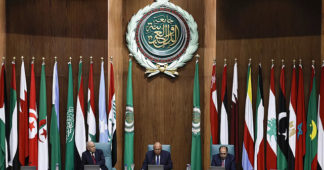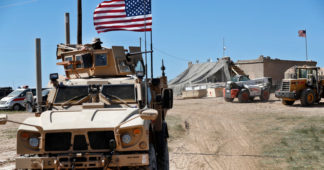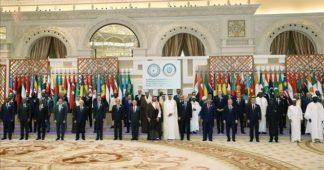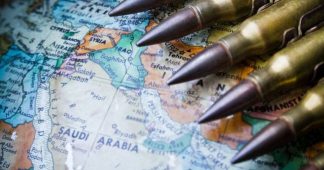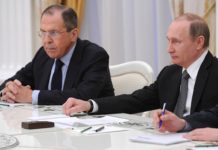By Marwan Emil Toubassi*
What Syria is experiencing today, as an Arab model, reflects a complex web of internal, regional, and international dynamics. On one hand, the hereditary authoritarian regime of Assad (father and son) left a heavy legacy of repression, corruption, and political isolation. This occurred within an Arab context shaped by a century of instability perpetuated by colonialism, leaving no room for stability. Oppression prevailed, and justice was absent, even with our own contributions to this reality. We reached our current state without serious efforts to confront it due to a lack of vision or willpower. Those who dared to envision change faced injustice and paid a heavy price, becoming a harsh example in Arab lands that were supposed to be our homelands.
On the other hand, forces aligned with what is termed “political Islam” exploited this vacuum created by the reality of these regimes and their practices, presenting themselves as an alternative capable of leading a “corrective revolution.” However, in reality, these forces served foreign agendas and practiced even greater atrocities through their history, doctrines, and concepts, which reject any otherness.
Syria as a Microcosm of the Arab World
What is happening in Syria is not isolated from the broader context of Arab societies, which have suffered—and continue to suffer—from the absence of democracy, pluralism, and political stagnation. This situation has been exacerbated by the decline of nationalist, leftist, and progressive parties, which, for various reasons, abandoned the field, leaving space for the rise of political Islam in our societies. Political Islam, driven by the global agenda of the Muslim Brotherhood, originated as a tool of British colonialism and has now evolved into an American instrument for consolidating hegemony and imposing geopolitical divisions that serve Western interests.
The Assad Regime’s Legacy: Crushing Pluralism and Dialogue
Since Hafez al-Assad’s coup against his comrades in the Arab Socialist Ba’ath Party, the regime transformed state institutions into tools serving its narrow interests. It eradicated political pluralism, leaving Syria in a state of political stagnation, mirroring other Arab states. Despite the broad slogans of such nationalist regimes, their policies led to the deterioration and fragmentation of the state, paving the way for external forces and extremist groups to destabilize Syria, Iraq, Egypt, Lebanon, and beyond.
Today, the regime’s legacy contributes to Syria’s current collapse. Its failure to protect the state allowed Israeli tanks to stand a few kilometers from Damascus and enabled unprecedented airstrikes across Syrian territory without Israel paying a price.
The Rise of Political Islam: A Foreign Project With Local Tools
The absence of a national democratic project in Syria and the region created a vacuum for political Islam to present itself as an alternative. Although ostensibly part of the Arab social fabric, these movements operate globally under the Muslim Brotherhood’s umbrella, lacking a national vision.
Relying on extremist ideology and foreign support, these groups recruited foreign mercenaries from the Caucasus, Russian republics, and Turkey, reinforcing their image as a transnational project devoid of national aspirations. If these movements wish to be part of the solution, they must stop being part of the escalating problem. They must adopt a national discourse that recognizes pluralism, democracy, and civil state principles, halts the importation of fighters, renounces terrorism and extremism, and works for the national interest of society and the state to truly integrate into the social fabric.
The Decline of Nationalist and Leftist Parties: Lessons From the Past
Nationalist, leftist, and communist parties played significant roles in anti-colonial struggles and contributed to national revival, cultural enlightenment, and resistance against colonial projects during the 1950s and 1960s. However, they later declined due to strategic errors in addressing Arab realities, neglecting the concept of a unifying nationalist project, prioritizing internationalism over national issues, and repeated internal divisions. This weakened their position and vanguard role in Arab societies, which were subjected to a culture of subjugation and dependency.
This vacuum in Arab political spaces left the field open for political Islam to present itself as an alternative, despite its lack of a genuine national project and its reliance on foreign agendas that valued Kandahar over Jerusalem.
External Interventions and Israel
As the Syrian state and others disintegrated, Israel wasted no time exploiting the vacuum to become a key player in the region’s geopolitical chessboard. Backed by absolute American support, Israel now shapes the region’s strategic landscape to impose its dominance.
Towards a Progressive National Democratic Alternative
The future of Syria, with its strategic importance, requires the establishment of a broad, progressive national democratic movement. Names are unimportant; what matters is preventing the “Afghanization” or “Somalization” of Syria. This movement must unite diverse forces on national foundations with a democratic methodology, offering an alternative to authoritarian regimes and the dangers of political Islam.
Such a movement should not limit its goals to promoting freedoms, political pluralism, social and economic justice, and a civil state. It must also develop a vision coupled with programs and tools to defeat the Zionist colonial project seeking to impose the “Greater Israel” vision on the region. Israel exploits the division, fragmentation, and rivalries among regional actors to advance its goals.
This movement must serve as a true platform for societal dialogue and political and intellectual pluralism, aiming to uphold human values and the dignity of Arab individuals as rightful inhabitants of free homelands. Only then can we escape the confines of writing as our sole realm of freedom.
* Former Ambassador of Palestine to Greece
We remind our readers that publication of articles on our site does not mean that we agree with what is written. Our policy is to publish anything which we consider of interest, so as to assist our readers in forming their opinions. Sometimes we even publish articles with which we totally disagree, since we believe it is important for our readers to be informed on as wide a spectrum of views as possible.
